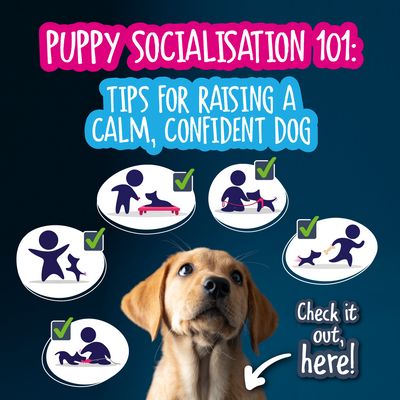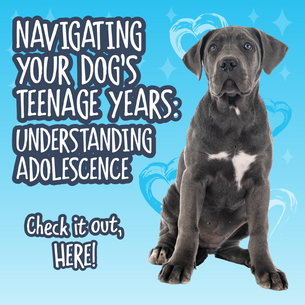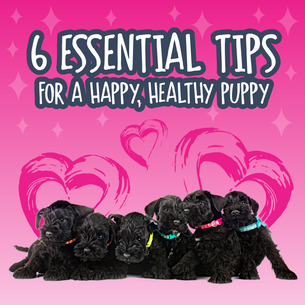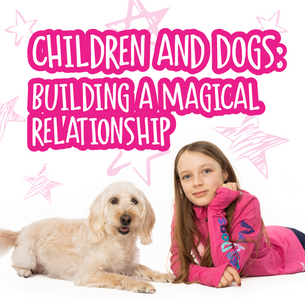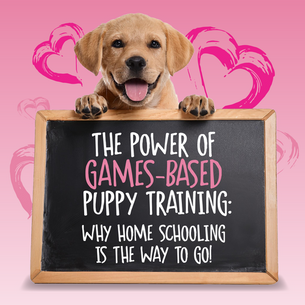Were you handed a socialisation checklist when you first brought home your puppy? If so, you're not alone. Many new dog owners are told they have a limited 'socialisation window' - often said to close around 16 weeks - leading to a mad rush of exposing puppies to various people, animals, and environments.
Socialisation is a vital part of your puppy’s development, but it isn’t just about exposure. In fact, overexposure or poorly planned socialisation can have the opposite effect, creating fear, anxiety, and even unwanted behaviours.
In today’s world, it is imperative that socialisation is recognised for what it truly is: an opportunity to prepare your puppy for the world they will live in. Let’s dive into what real socialisation looks like and how you can set your puppy (or older dog) up for lifelong confidence and optimism.
What is Puppy Socialisation? It’s Not Just a Checklist
The traditional view of socialisation often involves working through a checklist: meeting 50 dogs, 100 people, and a variety of strange objects and environments in a short timeframe. Seeking out the man with the strange beard, or the high-vis jacket, or the wizard’s hat, just to be sure your puppy has encountered these things before ‘time runs out’ and the opportunity is lost. The idea here is that you need to prepare your puppy for everything they are going to encounter throughout their lifetime. Sounds a bit crazy when you think about it, right?
While these goals may seem like they’ll prepare your puppy for life, they often lead to more stress for both you and your dog. Not only that, they can put your puppy in situations they aren’t equipped to handle and shape their view of the world in ways that are exactly opposite to what you intended.
So what should socialisation actually look like?
Does your puppy really need to meet dogs of all different ages, breeds, and temperaments in order to learn the right etiquette?
Do you actually need to work through a checklist of different people, animals, events, and environments for your puppy to experience in the first few weeks?
Or could that actually overwhelm them and knock their confidence and optimism?
The truth is, this approach relies on exposure and it can really go quite wrong. It’s what we would call training IN the situation, before your puppy has the skills and knowledge FOR that situation.
At absoluteDogs, we know socialisation is actually an opportunity to cleverly show your puppy that the world is a safe place that they can navigate with you by their side. Rather than being about a checklist of things to expose your puppy to, it’s really an opportunity to provide them with a foundation of optimism, confidence, and value in YOU (not in the environment and everything it has on offer)! It’s a chance to prepare them for situations of all kinds before ever putting them in those situations.
Socialisation is NOT:
- Meeting a specific number of people or dogs within a set time frame.
- Flooding your dog with new experiences to "check off" a list.
- Putting your puppy in situations they are not yet ready for, which can lead to fear or overwhelm.
Socialisation IS:
- Helping your dog learn that most things are none of their business.
- Building positive associations with novelty.
- Teaching your dog to choose you as their safe place in all situations.
It’s less about the number of things your puppy is exposed to and more about how they experience those moments. The aim is to create positive, calm interactions with the world around them, rather than overwhelming them with stimuli.
Why Overexposure Can Backfire
Over-socialisation often results in two major outcomes, both of which are problematic:
1. Over-excitement: Your dog may think every dog in the park is their friend, that every stranger is there to be jumped on, and that every experience is theirs to get involved with. They become overly-excited about life, believing everything is their business.
2. Fear: On the flip side, too much exposure can lead to a fearful or reactive dog. One negative experience can undo all the positive ones. This is because animals are more driven to avoid pain than to seek out pleasure, and just one bad experience can outweigh 100 good ones
Remember: the goal is to train for the situation, not in the situation. You want to prepare your dog to handle the world with confidence, rather than throwing them into the deep end and hoping they can swim.
Building Confidence and Optimism Through Games-Based Training
At absoluteDogs, we approach socialisation in a different way - through games-based training. Games encourage your puppy to problem-solve, navigate new situations, and grow their confidence in a fun, non-overwhelming way. Socialisation doesn’t have to happen outdoors or in high-stress environments. It can start right in your home, at a pace that suits your puppy.
Game-Based Socialisation Tips:
- Focus on Disengagement: One of the first concepts we teach puppies is disengagement. This means helping them learn that not everything requires their involvement. The world is a big place, but most of it is none of your puppy’s business.
- Encourage Calm Responses: Socialisation is about calmness in the face of novelty. If your puppy doesn’t react to something new, that’s a success! Your aim is for them to observe the world neutrally, not with excitement or fear.
- Celebrate Independence: Encourage your puppy to handle alone time and quiet moments. Sprinkle in enough independence for them to learn that they don’t need to be part of every interaction.
The Dangers of a Socialisation Checklist
Following a rigid checklist can put unnecessary pressure on both you and your puppy. It can also cause you to overlook how your puppy is coping with each new experience. Socialisation isn’t something that can be crammed into a 2-week window. It’s an ongoing process.
Why Checklists Don’t Work:
- Every Puppy is an Individual: Some puppies are naturally more resilient to new experiences, while others are more cautious. Tailor your approach to your dog’s unique personality.
- Stress Buckets: Every puppy has a stress threshold. Overloading their stress bucket with too many new experiences can result in overwhelm. It’s your job to ensure each new encounter is calm and positive.
- Negative Experiences Have a Lasting Impact: One bad encounter can undo all your hard work. It’s vital to introduce novelty at a pace your puppy can handle, ensuring that each interaction is a success.
How to Socialise Your Puppy the Right Way
The key to successful socialisation lies in preparation. Before exposing your puppy to a new environment, make sure they have the skills and confidence to handle it.
Top Tips for Socialisation Success:
1. Start Small: Begin socialisation in a controlled environment, like your home or garden. Introduce household items, like umbrellas, cardboard boxes, and noisy toys, to build your puppy’s confidence with novelty.
2. Train for the Situation: Instead of placing your puppy directly in a high-stress environment, like a busy park, train them in similar but less overwhelming situations first. Build their resilience and calmness before taking on more challenging environments.
3. Use Games: Play short, engaging games that challenge your puppy’s problem-solving skills. These games help them navigate new situations with confidence and optimism.
Puppy Socialisation Equipment List for Games-Based Training:
- Cardboard boxes, cones, and bowls for navigating obstacles.
- Noisy toys to help your puppy get used to sudden sounds.
- A raised bed or foam mats for helping your puppy experience different surfaces.
Creativity is key! Make it fun and engaging.
Check out our FREE Puppy Resource Bundle for oodles of games-based inspiration - including a resource dedicated to socialisation, as well as super bonus Socialisation Bingo! Download - the perfect way to think about appropriate socialisation opportunities with your puppy or older dog.
Socialisation is a Lifelong Journey
Contrary to the belief that socialisation ends after 16 weeks, the process is ongoing. You’ll always be training for novelty and preparing your dog for real-life scenarios. And if you’ve followed traditional advice and feel like you’ve overexposed your puppy, all is not lost! It’s never too late to reshape your dog’s confidence and optimism through games and positive reinforcement.
Perhaps you’re reading this as the owner of a dog who currently struggles to interact appropriately with other dogs because of bad experiences when they were younger, despite your very best efforts to do right by them and make sure they were well socialised. If that’s you, make sure you check out our blog post Help! My Dog Doesn’t Like Other Dogs for a much deeper understanding of the dog-dog interaction chain, and how to start reshaping those responses.
Remember, games-based training works for ALL dogs, regardless of their past experiences, history, age or breed. You can reshape your dog’s brain by playing games that grow the concepts they are currently missing, strengthen their weaknesses, transform their behaviour and grow amazing strengths.
The Gamechanger Approach:
- Focus on Confidence and Optimism: Build your puppy’s resilience through small, manageable challenges.
- Disengagement is Key: Teach your puppy that not everything is their business, and that calm observation is the best way to interact with the world.
- Adaptability is Everything: The world will throw novelty at your puppy all the time. Prepare them to handle these situations through thoughtful, games-based training.
Setting Your Puppy Up for Success
Puppy socialisation is about more than checking off a list - it’s about giving your dog the skills they need to navigate life with confidence, calmness, and resilience. By focusing on disengagement, building positive associations with novelty, and training for situations rather than in them, you’ll set your dog up for a lifetime of success.
Want to learn more? Be sure to subscribe to our podcast for a weekly dose of tips and game-based training inspiration.
